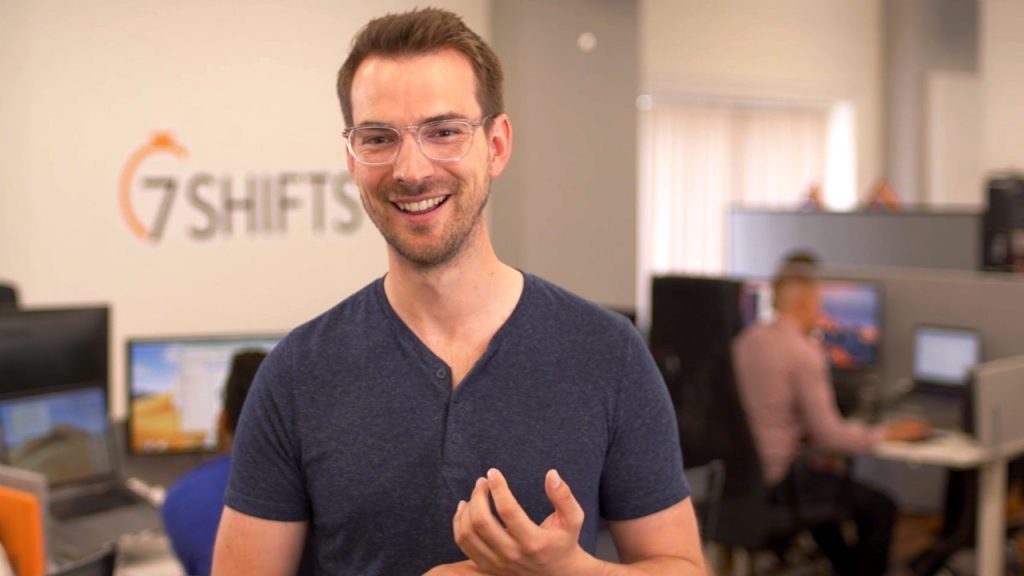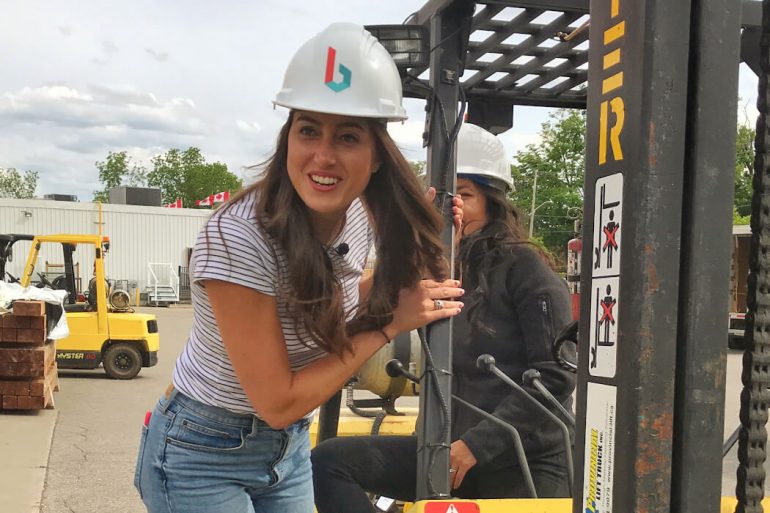No two startup journeys are identical. However, trends can emerge across businesses and, as the saying goes, success leaves clues.
As part of a CIBC Innovation Banking video series, leaders from four different companies–Bridgit, 7shifts, Jane App, and Bloomerang–shared the key lesson that helped them scale.
Talk to your customers incessantly when building your MVP
Mallorie Brodie and Lauren Lake both grew up as part of families in construction, so they had strong ideas of how to add value to the industry with Bridgit. But instead of relying on that family history, the duo took a different approach: they showed up with Timbits on construction sites and asked people about the challenges they face in their job.
“We were never saying, ‘Oh, we have a better way or we know better.’ We were just there to learn from people.”
After spending six months visiting sites and speaking with over 500 construction workers, the two drew out an app on printer paper. They then went back to those sites and demoed their app idea. After iterating on paper until construction workers liked the result, the two invested personal savings to build an MVP.
“We were never saying, ‘Oh, we have a better way or we know better,’” said Lake. “We were just there to learn from people.”
Fast forward five years and Bridgit has been growing an average of 313 percent annually and now powers over 10,000 projects. The company has also raised over $30 million in total VC funding with an additional $7 million in growth capital from CIBC—and it all started with a piece of paper.
Forget balance and focus on harmony as you scale
When Alison Taylor and Trevor Johnston hit the growth stage with clinic management platform Jane, the pair both had families and significant business demands on their time. However, they felt like the concept of “work-life balance” was failing them.
“I don’t think work-life balance exists,” said Taylor. “It creates a lot of guilt in people, I think, because it’s kind of impossible.”
Rather than thinking about how to “balance” work and life, the two refocused on a different concept: work-life harmony.
The concept, as Taylor explained it, is that your life is a song with different parts reflecting both work and life parts. And sometimes, “some parts of your life song are going to be louder and some parts are going to be quieter,” said Taylor.
Over the years, that has looked like working during the day, having dinner with kids, then logging back in to handle an urgent issue. While this may not work for everyone–both Taylor and Johnston said they don’t encourage this behaviour in employees–it is essential for busy founders who are sick of feeling guilty that they can’t find “balance.” And it turns out it works for business growth, too; the company’s performance helped it secure a $2 million debt facility to grow even further.

Don’t be afraid to pivot in order to grow
Jordan Boesch originally built 7shifts as an app for his father’s restaurant. He then expanded the business, selling into the broader retail segment for any organization that needed to schedule employees. However, Boesch was concerned he was growing in ways he couldn’t sustain.
“We were kind of the jack of all, master of none,” said Boesch.
He shared that after your MVP takes off, founders have to ask themselves “Who are you ultimately solving those pain points for?” For Boesch, that was always the restaurant industry, a realization that led to him firing half his customer base to focus exclusively on food service businesses.
This pivot might appear chaotic–no growing startup wants to think about firing their customers–but Boesch said it allowed the team to focus and open up a new growth channel.
“We opened doors to all these other types of partnerships that were specific to the restaurant industry that other people hadn’t capitalized on,” said Boesch.
That new channel, among other growth tactics, helped 7shifts secure $1.7 million in growth capital from CIBC.
Know when it’s time to step aside
A founder can spend years building a business, only to realize they are no longer the right person for the CEO spot—this is what happened to Bloomerang co-founder and former CEO Ross Hendrickson.
Hendrickson built the company for nearly a decade, serving first as COO before moving into the CEO role in 2017. Then he hit the “founder’s dilemma” head-on.
“The founder’s dilemma is when you have an entrepreneur that founds a company but generally has a hard time taking that company into the growth stage,” said Hendrickson.
By 2022, he realized he was not the right person to take Bloomerang into its next phase, so he began to set the stage for his own exit.
Hendrickson first hired a CFO to remove himself from the financial operations of the company, then continued to build the infrastructure that would allow him to step down. This included raising growth capital and promoting, delegating, or hiring to build a competent leadership team. In January 2023 he officially left the CEO spot to become a board member and strategic advisor to the company—helping it continue to grow, with the company announcing $60 million in syndicated debt financing in July 2023.
Looking back on the journey, Hendrickson likens company building to one of his passions, music.
“It’s a little bit like a startup where you know you’ve got to have the right people together at the right time and you’ve got to be playing the music,” said Hendrickson.


